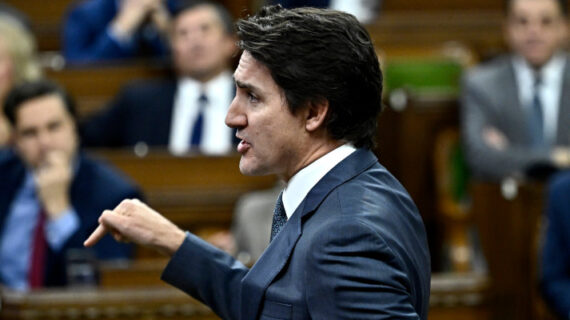The political future of Conservative leader Erin O’Toole will be decided Wednesday morning after a historic caucus vote.
If the Conservative caucus removes O’Toole as leader it will be the first time the Reform Act has been used in this way since it became law in 2014. In October, the Conservative caucus became the first party to adopt all four provisions of the law, including the mechanism to remove a party leader.
That provision allows 20 percent of a party’s sitting MPs to initiate a leadership review and only requires a slim 50-plus-one majority to remove the party leader and to trigger a vote for an interim replacement. The party could then embark on a leadership contest to choose a new permanent leader to take them into the next election.
On Tuesday, O’Toole wrote on Twitter that he welcomed the vote and would accept its results.
“It’s time for a reckoning. To settle this in caucus. Right here. Right now. Once and for all,” said O’Toole.
Global News reported on Tuesday that about 30 percent of the party’s MPs had signed a petition calling for a leadership review, meaning only about 25 MPs would have to join the dissenters to remove O’Toole.
The Reform Act, which was the brainchild of Conservative MP Michael Chong has divided opinion among politicians and their parties. When the Conservatives adopted the law in its entirety last year, they were the first party to ever do so, while the Liberal Party and NDP chose not to use the Reform Act rules to govern their party caucuses.
In a recent interview with The Hub, Chong said the rules allowed the Conservative Party to eject MP Derek Sloan from caucus last year with an orderly process that had buy-in from parliamentarians.
“That is in contrast to the way MPs like Jody Wilson-Raybould and Jane Philpott were expelled from the Liberal caucus, which was done not under Reform Act rules, but under an opaque process that ultimately was the prime minister’s decision,” said Chong. “So, I think it has led to a good, cultural shift that strengthened the Conservative parliamentary party and strengthened the role of individual Conservative MPs.”
As Chong explained in his interview with The Hub, O’Toole is both the leader of the parliamentary party — essentially caucus on Parliament Hill — and the broader political party, which is governed by the Canada Elections Act. “These two separate and distinct parties do not interact with each other directly,” said Chong.
Wednesday’s vote only concerns the parliamentary party but, presumably, O’Toole couldn’t continue as leader of the political party after being ousted by caucus.
Even among conservatives, opinions on the Act are divided.
During a week of debate at The Hub last year about the Reform Act, political theorist Ben Woodfinden argued the law strengthened party caucuses and had a democratizing effect.
“The caucus doesn’t now have power to choose a leader, but it does now have a formal mechanism by which it can impeach a leader if it feels the need to do so,” wrote Woodfinden. “This is important. Serious accountability requires formal mechanisms that can be used when necessary to actually hold leaders accountable.”
Ken Boessenkool, who has been at the centre of federal and provincial governments in Canada, argued that the Reform Act is superfluous and tramples on the party constitutions.
“Why should this act have precedence over legally constituted and approved party rules?” wrote Boessenkool. “If parties want to have caucuses determine the leader, and a leadership review, they should do that.”
Chong responded that parties on Parliament Hill have always had unwritten rules governing these situations, but now the Reform Act has “codified these rules in writing in order to make them clear and available for all to understand.”
Howard Anglin, who has worked in the prime minister’s office and the premier’s office in Alberta, argued that the Reform Act gives too much power to a tiny number of MPs and could lead to constant upheaval.
“Imagine the Liberal caucus adopts the Reform Act’s leadership review and replacement provisions at its first meeting,” wrote Anglin.
“It would mean that just 32 Liberal MPs could initiate a review of the prime minister, and just 81 MPs—less than a quarter of all MPs in the House—could oust a sitting prime minister. The whims of a caucus replace the will of Parliament,” he wrote.




